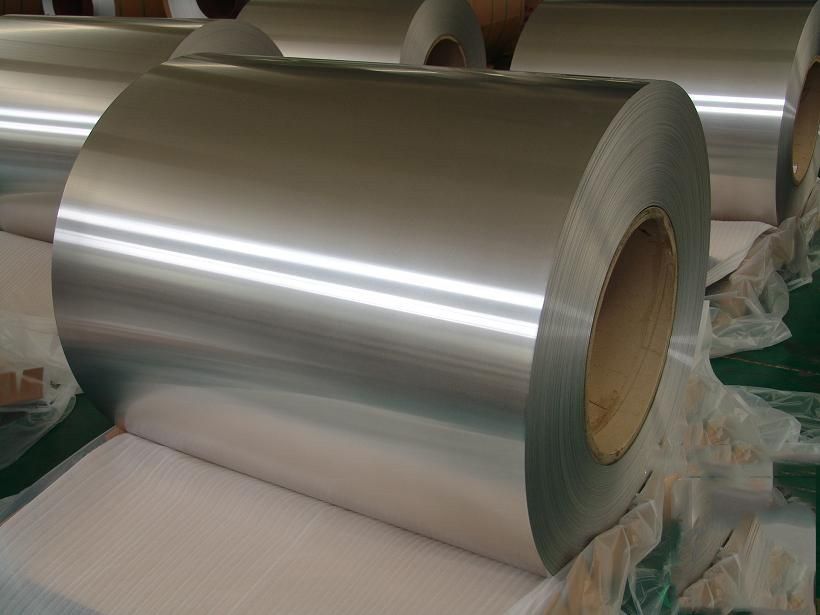3000 series aluminum coils are aluminum alloys primarily composed of manganese. Representative grades include 3003, 3004, 3104 and 3105. They offer excellent rust resistance and processing properties, making them widely used in electronics, packaging, construction, machinery and new energy applications.

Common 3000 series aluminum coils alloys include the following:
- 3003 aluminum coil:
This is the most commonly used 3000 series aluminum alloy, offering excellent formability and weldability. It is widely used in kitchen appliances, chemical equipment, storage tanks, and other applications.
- 3004 aluminum coil:
This alloy boasts slightly higher strength than 3003 and is commonly used in the manufacture of beverage packaging materials such as aluminum cans and bottles.
- 3005 aluminum coil:
Primarily used in building and roofing materials, it offers excellent corrosion resistance and moderate strength.
- 3104 aluminum coil:
Primarily used in the manufacture of aluminum cans, it is an alloy suitable for high strength and formability.
- 3105 aluminum coil:
Commonly used for exterior wall materials in residential buildings and mobile homes.
Manganese (Mn) is the primary alloying element of 3000 series aluminum coils, with a content between 1.0% and 1.5%, and an aluminum content of ≥99%. The addition of manganese significantly enhances the material's corrosion resistance while maintaining excellent processability.
Key performance of 3000 series aluminum coils:
- Rust Resistance: Superior to 1000 series pure aluminum coil, suitable for humid or corrosive environments.
- Workability: High ductility in the annealed state, still machinable when semi-hardened, and increased strength after cold work hardening.
- Weldability: Easy to weld, with consistent weld quality, suitable for complex structure fabrication.
- Corrosion Resistance: An oxide film forms on the surface, effectively resisting atmospheric and chemical corrosion.
Key Production Process of 3000 Series Aluminum Coils:
- Melting and Casting: Aluminum ingots and Al-Mn master alloys are melted at 720-760°C. Electromagnetic stirring is used to ensure uniform composition, and slabs are produced using a semi-continuous casting process.
- Hot and Cold Rolling: After homogenizing annealing at 500-600°C, the slab is hot rolled to a thickness of 6-8mm and then thinned to the target thickness through multiple cold rolling passes. The total deformation can reach 60-90%.
- Surface Treatment: Alkaline and pickling processes are used to remove oil and scale, followed by chromium-free passivation (such as titanium-zirconium) or coating to enhance corrosion resistance and decorative properties.
Quality Inspection Standards
- Mechanical Properties: According to GB/T 3880-2012, 3003-H24 aluminum coil must have a tensile strength of ≥160MPa and an elongation of ≥6%.
- Corrosion Resistance Testing: The salt spray test (ASTM B117) requires no white rust for 48 hours. Aluminum coil for photovoltaic applications must pass a test of at least 1000 hours.
- Surface Inspection: The AI visual inspection system can detect defects as small as 0.01mm with an accuracy of 99.8%, ensuring product consistency.
Features of 3000 Series Aluminum Coils:
- Excellent corrosion resistance: Suitable for use in humid or corrosive environments.
- Good formability: Easy to process and form, suitable for various manufacturing processes.
- High strength: Compared to 1000 series aluminum alloys, 3000 series aluminum alloys have higher strength.
- Good weldability: Suitable for welding and joining.
Core Applications of 3000 Series Aluminum Coils:
- New Energy Industry
Power Battery Housings: 3003 aluminum coil has become the mainstream material for electric vehicle battery housings due to its lightweight (density 2.7g/cm³), high strength, and corrosion resistance, capable of withstanding the impact of complex environments.
Energy Storage Systems: Used in the manufacture of energy storage device housings to ensure long-term stability.
- Traditional Industries:
Automotive Manufacturing: Body and chassis components, reducing weight and improving fuel efficiency.
Architectural Decoration: Curtain walls and interior decoration materials, balancing durability and aesthetics.
Electronics: Circuit boards and electronic component housings, utilizing their conductivity and corrosion resistance.
- Special Applications:
Aerospace: Aircraft skins and skeletal structural components, relying on their lightweight and high-strength properties.
Chemical Machinery: Corrosion-resistant equipment manufacturing, suitable for harsh operating conditions. Medical devices: Some component materials meet biocompatibility requirements.
Due to its excellent overall performance and cost advantages, 3000 series aluminum coil holds an irreplaceable position in the construction, packaging, and new energy sectors.